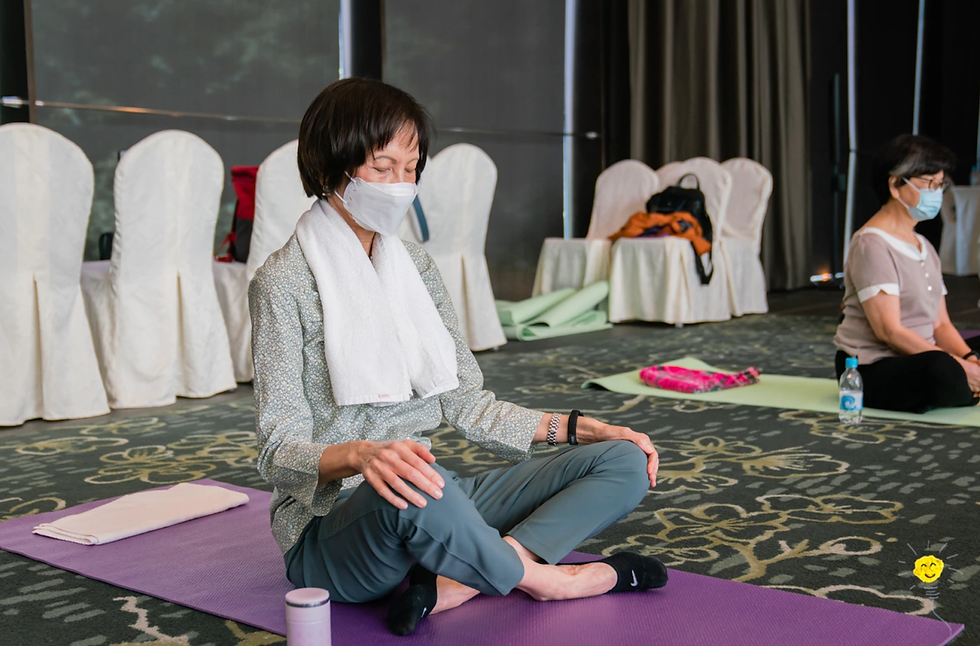Bosch Sensortec
- Upmood
- Apr 30, 2025
- 2 min read
Updated: Jul 1, 2025
April 2023
Monitoring Emotions in Motion: Unveiling the Links Between Exercise and Well-Being
Nature of Event: | Research |
Products Used: | Mass/Insight |
Metrics Collected: | Mood, Stress level, BPM, Exertion, Valence level, Pure Ppi, HRV |
Bosch Sensortec
Bosch Sensortec GmbH, a subsidiary of Robert Bosch GmbH, specializes in developing microelectromechanical systems (MEMS) sensors designed for a variety of applications, including smartphones, wearables, and IoT devices. Their mission focuses on enhancing user experience and interaction through innovative technology.
Introduction
In April 2023, Bosch Sensortec partnered with Upmood to conduct a comprehensive study exploring the emotional responses of individuals during various exercise sessions. The goal was to uncover correlations between physical activity and emotional states, emphasizing the importance of emotion monitoring in fitness and wellness programs.

Engagement Process
Throughout the engagement, Bosch Sensortec facilitated a series of over 100 online and offline fitness sessions, designed for individual and group participation.
Online Sessions: Included diverse activities such as Kung Fu, Hip Hop, Functional Stretching, Yoga, Boxing, and Animal Flow. Each session lasted between 30 to 40 minutes.
Offline Sessions: Conducted in a classroom setting, these included Yoga, Sound Therapy, and Tai Chi, guided by a live instructor.
Participant Demographics: Aimed at individuals aged 25-35, both genders were represented.
Throughout these sessions, participants wore Upmood devices that monitored their emotional states in real time, providing invaluable data on their emotional responses to different types of exercises.

Why Upmood?
Upmood's technology was pivotal in achieving Bosch Sensortec's research goals by enabling simultaneous emotion monitoring for multiple participants through Upmood Mass, which allowed for robust data collection. Additionally, Upmood Insight provided detailed analytics that facilitated the identification of emotional trends and correlations between exercise difficulty and emotional states.
Key Outcomes
The findings from the engagement were significant and highlighted important correlations:
Emotion-Arousal Correlation: A strong positive correlation (r = 0.93) was found between increased session difficulty and elevated emotion levels.
Engagement Insights: Challenging activities led to a slight increase in negative valence (r = 0.25), indicating a nuanced relationship between challenge and emotional response.
User Progress: Participants showed a 13.2% reduction in negative emotions upon repeating sessions, alongside an average 6.8% decrease in stress levels between their first and second sessions.
Conclusion
This research highlighted the profound impact of emotion monitoring on understanding emotional well-being in fitness contexts. By utilizing Upmood's innovative technology, Bosch Sensortec was able to draw meaningful insights that can inform future fitness programs. As emotion monitoring continues to evolve, Upmood stands ready to support organizations in leveraging data-driven insights to enhance emotional well-being in various domains.
Thank you!
We would like to extend our heartfelt thanks to Bosch Sensortec for their support throughout this engagement. If you are interested in holding your own [case study here] or trying out Upmood products, please email us at support@upmood.com


